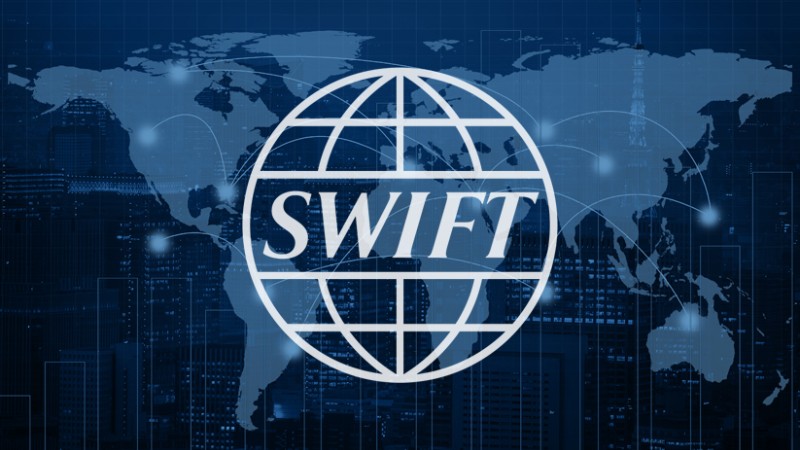Business
SWIFT Plans to Launch a New Digital Currency Platform for Central Banks in the Next 12 to 24 Months

The global bank messaging network SWIFT plans to launch a new platform within the next year one or two to link the wave of central bank digital currencies currently under development to the current financial system.
With the pivotal role that SWIFT plays in international banking, this move—which would be among the most consequential for the emerging CBDC ecosystem—is probably going to be adjusted for the launch date of the first significant ones.
Currently, nearly 90% of central banks across the world are looking into the possibility of releasing digital currencies. Most are battling with the intricacies of technology, but they don’t want to fall behind Bitcoin and other cryptocurrencies.
One of the largest global collaborations on CBDCs and “tokenised” assets to date, according to Nick Kerigan, head of innovation at SWIFT, was its most recent trial, which lasted six months and involved a group of 38 central banks, commercial banks, and settlement platforms.
The primary objective was to mitigate the risk of payment system fragmentation by guaranteeing that CBDCs from various countries can be utilized in tandem, even if they are constructed on disparate underlying technologies, or “protocols”.
It also demonstrated their potential for automation to expedite and reduce costs in extremely complicated trade or foreign exchange payments.
Kerigan stated that the results, which demonstrated that banks could use their current infrastructure, were generally considered a success by the participants and provided a deadline for SWIFT to adhere to.
In an interview, Kerigan stated, “We are looking at a roadmap to productize (launch as a product) in the next 12-24 months. It’s moving out of the experimental stage towards something that is becoming a reality.”
Putting out the blocks for when major economy CBDC launches happen would be a major boost for maintaining SWIFT’s incumbent dominance in the bank-to-bank plumbing network, though the timeline could still change if they are delayed.
There are already operational CBDCs in the Bahamas, Nigeria, and Jamaica, among other nations. China has made significant progress in the real-world testing of e-yuan. While the global central bank umbrella organization, the Bank for International Settlements, is conducting several cross-border trials, the European Central Bank is also actively working on a digital euro one.
The primary benefit of SWIFT, however, is that its current network is already operational in more than 200 nations and links over 11,500 banks and funds, enabling it to transfer trillions of dollars daily.
SCALABLE OPTION
Since cutting off the majority of Russia’s banks from its network in 2022 as part of the West’s sanctions for the invasion of Ukraine, the company has gone from being essentially unknown outside of the banking community to becoming a household name.
Although Kerigan acknowledged that such a move could still occur in a new CBDC system, he questioned whether it would deter nations from joining one.
In its most recent trial, central banks from the Czech Republic, Germany, France, Australia, Singapore, and Thailand were among those who asked to remain anonymous.
Participating were at least two Chinese banks in addition to a host of major commercial banks such as HSBC, Citibank, Deutsche Bank, Societe Generale, Standard Chartered, and the CLS FX settlement platform.
The idea is that banks would have one primary global connection point that can handle digital asset payments once the interlink solution is scaled up, as opposed to thousands if they were to set up individual ones with each counterparty.
In addition to the progress made in the creation of CBDCs, Kerigan cited a prediction made by the Boston Consulting Group (BCG) that by 2030, assets valued at approximately $16 trillion may be “tokenized”—that is, assets such as stocks and bonds will be converted into digital chips that can be issued and traded instantly.
“If we can plug in any number of networks (into the SWIFT system) it becomes a much more scalable option for the industry,” he stated.
-

 Sports4 weeks ago
Sports4 weeks agoFIFA Club World Cup 2025: Complete List of Qualified Teams and Groups
-

 Sports3 weeks ago
Sports3 weeks agoAl Ahly vs Inter Miami, 2025 FIFA Club World Cup – Preview, Prediction, Predicted Lineups and How to Watch
-
Health2 weeks ago
Back to Roots: Ayurveda Offers Natural Cure for Common Hair Woes
-

 Tech2 weeks ago
Tech2 weeks agoFrom Soil to Silicon: The Rise of Agriculture AI and Drone Innovations in 2025
-

 Sports4 weeks ago
Sports4 weeks agoFIVB Men’s Volleyball Nations League 2025: Full Schedule, Fixtures, Format, Teams, Pools and How to Watch
-

 Startup3 weeks ago
Startup3 weeks agoHow Instagram Is Driving Global Social Media Marketing Trends
-

 Sports3 weeks ago
Sports3 weeks agoWorld Judo Championships 2025: Full Schedule, Date, Time, Key Athletes and How to Watch
-

 Sports2 weeks ago
Sports2 weeks agoFIBA 3×3 World Cup 2025: Full Schedule, Preview, and How to Watch



















